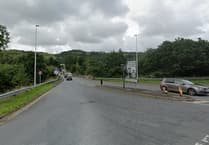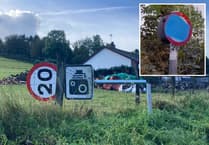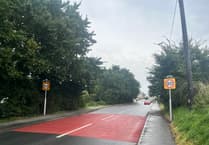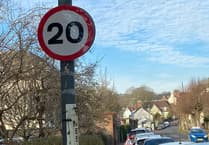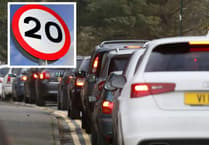Two Aberystwyth University professors have said ‘it is time we stopped accepting death and injury in the name of freedom of mobility’, in response to the new 20mph speed limits.
Writing in The Conversation, professor of psychology Charles Musselwhite and professor of human geography Peter Merriman said the new scheme has huge potential public health benefits, and may encourage more of us to walk or cycle.
They say: “A common complaint is that journey times will be slower.
“But a UK government report in 2018 looked at 12 case studies in England where 20mph limits were implemented, concluding that journey times increased by only three per cent in residential areas and five per cent in city centres, adding less than a minute to a five-mile trip.
“Also, as traffic flows are often more interrupted in urban areas – with frequent junctions and traffic lights, for example – a slight reduction in maximum permitted speeds may smooth out the traffic flow, reducing perceived delays.
“Driver behaviour is, of course, a complex subject. Some drivers simply do not want to slow down and feel they have a right to drive fast.
“Meanwhile, other drivers feel the pressure to conform with other people’s behaviour, fitting in with the prevailing norms on the road.”
They go on to add: “The truth is that most people are not opposed to 20mph speed limits, but a sizeable minority are.
“Welsh Government-commissioned research suggests 80 per cent were either slightly or strongly in favour of 20mph limits in 2021, but that this fell to 63 per cent in 2022.
“This is not uncommon, however, as people’s support for change tends to grow initially but then falls off the closer it gets to implementation. Eventually, people may come around to the idea.
“But it needs a government willing to stand its ground when negative public opinion emerges just before implementation, as we are seeing now
“It is time we stopped accepting death and injury in the name of freedom of mobility.
“Default 20mph speed limits are a good start but they must be accompanied by driver education programmes and police enforcement to be effective.
“And, of course, non-motoring road users still need more pavements, cycle lanes, safe crossing points and efficient and affordable public transport options.”

